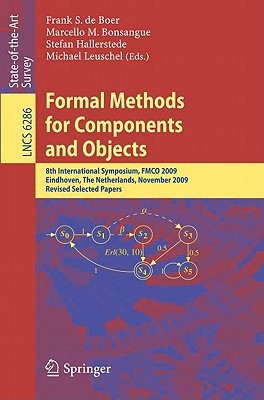Formal Methods for Components and Objects(English, Paperback, unknown)
Quick Overview
Product Price Comparison
All modern industries rely on large and complex software systems. In order toconstruct such large systems in a systematic manner, the focus of the developmentmethodologies has switched in the last two decades from functional to structuralissues. Formal methods have been applied successfully to the verification ofmedium-sized programs in protocol and hardware design. However, their applicationto the development of large systems requires a greater emphasis on specification,modeling, and validation techniques supporting the concepts of reusability andmodifiability, and their implementation in new extensions of existing programminglanguages like Java.This state-of-the-art survey presents the outcome of the 8th Symposium on FormalMethods for Components and Objects, held in Eindhoven, The Netherlands, inNovember 2009. The volume contains 17 revised contributions submitted after thesymposium by speakers from each of the following European IST projects: theIST-FP6 project BIONETS on biologically inspired services evolution for thepervasive age; the IST-FP7 project COMPAS on compliance-driven models, languages,and architectures for services; the IST-FP6 project CREDO on modelling andanalysis of evolutionary structures for distributed services; the IST-FP7 DEPLOYon industrial deployment of advanced system engineering methods for highproductivity and dependability; the IST-FP7 project HATS on highly adaptable andtrustworthy software using formal methods; the IST-FP7 project INESS on integratedEuropean railway signalling system; the IST-FP7 project MOGENTES on model-basedgeneration of tests for dependable embedded systems; the IST-FP6 project PROTESTon property based testing; and the IST-FP7 project QUASIMODO on quantitativesystem properties in model-driven-design of embedded systems.


